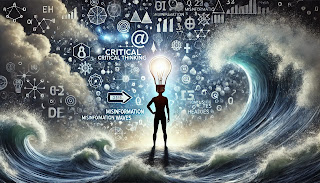Truth Has No PR Team. Fiat Does.

Truth doesn’t need a marketing budget. It doesn’t hire spokespeople or run flashy ads between football games. Truth doesn’t beg for approval. It doesn’t need likes, retweets, or a blue checkmark. Truth just waits—silent, patient, unyielding. And when the lies collapse under the weight of their own contradictions, truth is still standing. Fiat currency? Oh, it has the full PR machine. Politicians, economists, media outlets—all reading from the same script. "Inflation is normal." "Central banks have it under control." "This is how it's always worked." They need you to believe that money losing value over time is just part of life. They need you distracted. Because if you ever really looked under the hood, the whole system would fall apart. Lies are loud because they have to be. They’re fragile. They need reinforcement. That’s why fiat is everywhere you look: news cycles, commercials, sponsored experts. It can’t stand still. It has to run fast enough to o...





















